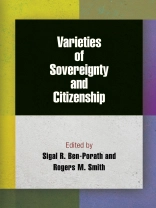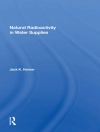In Varieties of Sovereignty and Citizenship, scholars from a wide range of disciplines reflect on the transformation of the world away from the absolute sovereignty of independent nation-states and on the proliferation of varieties of plural citizenship. The emergence of possible new forms of allegiance and their effect on citizens and on political processes underlie the essays in this volume.
The essays reflect widespread acceptance that we cannot grasp either the empirical realities or the important normative issues today by focusing only on sovereign states and their actions, interests, and aspirations. All the contributors accept that we need to take into account a great variety of globalizing forces, but they draw very different conclusions about those realities. For some, the challenges to the sovereignty of nation-states are on the whole to be regretted and resisted. These transformations are seen as endangering both state capacity and state willingness to promote stability and security internationally. Moreover, they worry that declining senses of national solidarity may lead to cutbacks in the social support systems many states provide to all those who reside legally within their national borders. Others view the system of sovereign nation-states as the aspiration of a particular historical epoch that always involved substantial problems and that is now appropriately giving way to new, more globally beneficial forms of political association. Some contributors to this volume display little sympathy for the claims on behalf of sovereign states, though they are just as wary of emerging forms of cosmopolitanism, which may perpetuate older practices of economic exploitation, displacement of indigenous communities, and military technologies of domination. Collectively, the contributors to this volume require us to rethink deeply entrenched assumptions about what varieties of sovereignty and citizenship are politically possible and desirable today, and they provide illuminating insights into the alternative directions we might choose to pursue.
Inhoudsopgave
Introduction
—Sigal R. Ben-Porath and Rogers M. Smith
I. WAR, SOVEREIGNTY, AND PLURAL CITIZENSHIPS
Chapter 1. Sovereignty Out of Joint
—Arjun Chowdhury
Chapter 2. War, Rights, and Contention: Lasswell v. Tilly
—Sidney Tarrow
Chapter 3. Subcontracting Sovereignty: The Afterlife of Proxy War
—Anna Tsing
Chapter 4. In Conflict: Sovereignty, Identity, Counterinsurgency
—Nasser Hussain
II. IMMIGRATION, SOVEREIGNTY, AND PLURAL CITIZENSHIPS
Chapter 5. Citizen Terrorists and the Challenges of Plural Citizenship
—Peter H. Schuck
Chapter 6. Immigration, Causality, and Complicity
—Michael Blake
Chapter 7. The Missing Link: Rootedness as a Basis for Membership
—Ayelet Shachar
III. ON COSMOPOLITAN ALTERNATIVES
Chapter 8. World Government Is Here!
—Robert E. Goodin
Chapter 9. If You Need a Friend, Don’t Call a Cosmopolitan
—Jeremy Rabkin
Chapter 10. The Physico-Material Bases of Cosmopolitanism
—Pheng Cheah
Chapter 11. Citizens of the Earth: Indigenous Cosmopolitanism and the Governance of the Prior
—Elizabeth A. Povinelli
Chapter 12. The Idea of Global Citizenship
—David Miller
Chapter 13. Why Does the State Matter Morally? Political Obligation and Particularity
—Anna Stilz
List of Contributors
Notes
Index
Over de auteur
Sigal R. Ben-Porath is Professor of Literacy, Culture, and International Education in University of Pennsylvania’s Graduate School of Education and author of Citizenship Under Fire: Democratic Education in Time of War and Tough Choices: Structured Paternalism and the Landscape of Choice. Rogers M. Smith is Christopher H. Browne Distinguished Professor of Political Science at the University of Pennsylvania. He is author of many books, including Stories of Peoplehood: The Politics and Morals of Political Memberships, and editor of Citizenship, Borders, and Human Needs, also available from the University of Pennsylvania Press.












